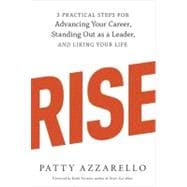
| Foreword | p. viii |
| Introduction-Working versus Succeeding | p. 1 |
| DO Better-Have More Impact | |
| Work the Right Way | |
| Be Less Busy | p. 14 |
| Ruthless Priorities | p. 20 |
| Make More Time | p. 38 |
| The Agony and the Paycheck | p. 51 |
| They Shoot Workhorses, Don't They? | p. 64 |
| Work at the Right Level | |
| The Level Dilemma | p. 72 |
| Delegate or Die | p. 85 |
| Better with Less | p. 98 |
| Trust and Consequences | p. 103 |
| LOOK Better-Be Visible, But Not Annoying | |
| Executive Presence | |
| Credibility and Relevance | p. 118 |
| Your Personal Brand | p. 129 |
| Look Better! | p. 143 |
| Standing Out | |
| Be Visible, But Not Annoying | p. 149 |
| Selling Your Ideas | p. 163 |
| CONNECT Better-Get Support | |
| Building Connections | |
| Get Help | p. 176 |
| Authentic Networking, Not Politics | p. 191 |
| Imagine That! | p. 204 |
| Landing the Big Job | |
| The Experience Paradox | p. 212 |
| Going Big | p. 223 |
| Getting on "the List" | p. 239 |
| GO!-Make Your Work, and Your Life, Work | |
| Work and Life: Be Better at Both | p. 246 |
| Executive Confessions | p. 253 |
| Epilogue | p. 265 |
| Resources | p. 267 |
| Acknowledgments | p. 269 |
| About the Author | p. 271 |
| Index | p. 272 |
| Table of Contents provided by Ingram. All Rights Reserved. |
The New copy of this book will include any supplemental materials advertised. Please check the title of the book to determine if it should include any access cards, study guides, lab manuals, CDs, etc.
The Used, Rental and eBook copies of this book are not guaranteed to include any supplemental materials. Typically, only the book itself is included. This is true even if the title states it includes any access cards, study guides, lab manuals, CDs, etc.